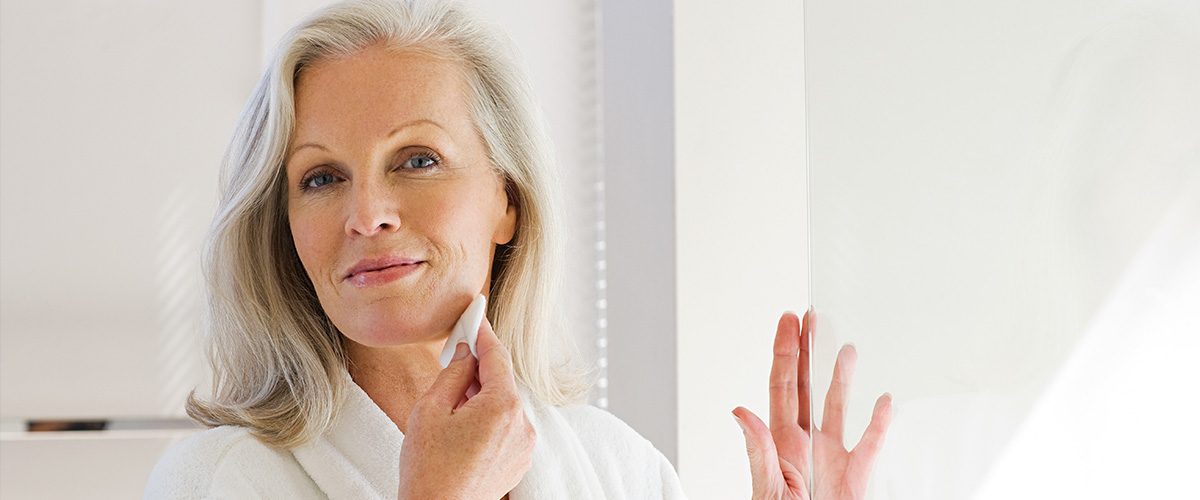While the thought of menopause may seem worrying or scary to some, it is something that every woman will eventually have to experience as a natural part of life. With the right advice, and an idea of what to expect, every woman can feel prepared to manage their symptoms head on so that the effect on their day to day is minimised. As our literal outer barrier and the thing that we have on show every hour of the day, our skin is usually the first area of the body to show signs of ageing, and this can apply to menopause too. As we age, our skin goes through a number of changes, and may become more fragile, drier and wrinkly. When it comes to menopause, changes to a woman’s skin can often lead to decreased skin hydration and a weakened skin barrier function, potentially giving rise to problematic skin.
-
QV Face Moisturising Day Cream SPF 30
QV Face Moisturising Day Cream SPF 30
Moisturising Day Cream with Vitamin B3 and SPF 30 broad spectrum.VIEW PRODUCT



